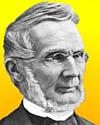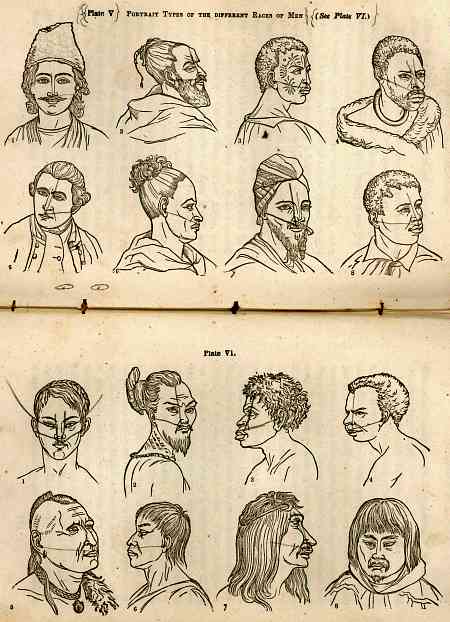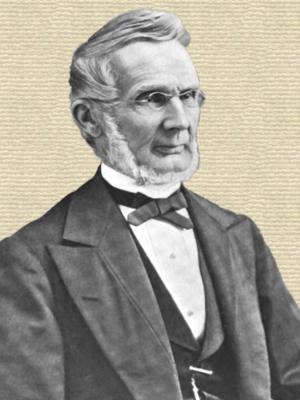Today in Science History - Quickie Quiz
 (source)
(source)
|
Arnold Henry Guyot
(28 Sep 1807 - 8 Feb 1884)
Swiss-American geographer and geologist who studied glaciers, taught geology and later was head of the meteorological department at the Smithsonian Institution. The guyot, a flat-topped volcanic peak rising from the ocean floor, is named after him.
|
Arnold Henry Guyot
Biography from Cyclopaedia of American Literature (1866)
In 1855, Arnold Henry Guyot was appointed Professor of Physical Geography [at Princeton College]. This eminent naturalist was born in Switzerland in 1807. He was early aquainted with Agassiz, and associated with him in the study of natural history. He studied theology for a while at Berlin, but his scientific tastes determined his future career.
He made profound and laborious investigations into the geology of the Alps, in reference, particularly to the transport of boulders, the results of which were published in Paris in 1848. He was in the mean time Professor of History of Neufchatel. The unsettled condition of the country in the political revolutions of the time induced him to emigrate to the United States.
He came to Boston, and in the winter of 1848-9 delivered a course of lectures in the French language on the relations between physical geography and history, which were translated by Professor Felton, and collected into a volume, entitled, Earth and Man (Boston, 1849). Mr Guyot, subsequently, was much engaged in a course of tours for scientific investigation through New England, New York, and North Carolina, and in the delivery of lectures, under the direction of the Massachusetts Board of Education, in the State Normal Schools. He has been also employed by the Smithsonian Institution in the organization of a series of meteorological observations.

Plates from Guyot's book,
Earth and Man (source)
Images added (not in original article) from sources shown above. Photo of Guyot from William Jay Youmans (ed.),
Pioneers of Science in America: Sketches of Their Lives and Scientific Work (1896), opp. 492. Text from Evert Augustus Duyckinck,
Cyclopaedia of American Literature: Embracing Personal and Critical Notices of Authors, and and selections from their writings. From the earliest period to the present day; with portraits, autographs, and other illustrations (1866), 27.
(source)See also:
- 28 Sep - short biography, births, deaths and events on date of Guyot's birth.
Nature bears long with those who wrong her. She is patient under abuse. But when abuse has gone too far, when the time of reckoning finally comes, she is equally slow to be appeased and to turn away her wrath. (1882) --
Nathaniel Egleston, who was writing then about deforestation, but speaks equally well about the danger of climate change today.
 Carl Sagan
Carl Sagan: In science it often happens that scientists say, 'You know that's a really good argument; my position is mistaken,' and then they would actually change their minds and you never hear that old view from them again. They really do it. It doesn't happen as often as it should, because scientists are human and change is sometimes painful. But it happens every day. I cannot recall the last time something like that happened in politics or religion. (1987) ...
(more by Sagan) Albert Einstein: I used to wonder how it comes about that the electron is negative. Negative-positive—these are perfectly symmetric in physics. There is no reason whatever to prefer one to the other. Then why is the electron negative? I thought about this for a long time and at last all I could think was “It won the fight!” ...
(more by Einstein) Richard Feynman: It is the facts that matter, not the proofs. Physics can progress without the proofs, but we can't go on without the facts ... if the facts are right, then the proofs are a matter of playing around with the algebra correctly. ...
(more by Feynman)
 (source)
(source)






